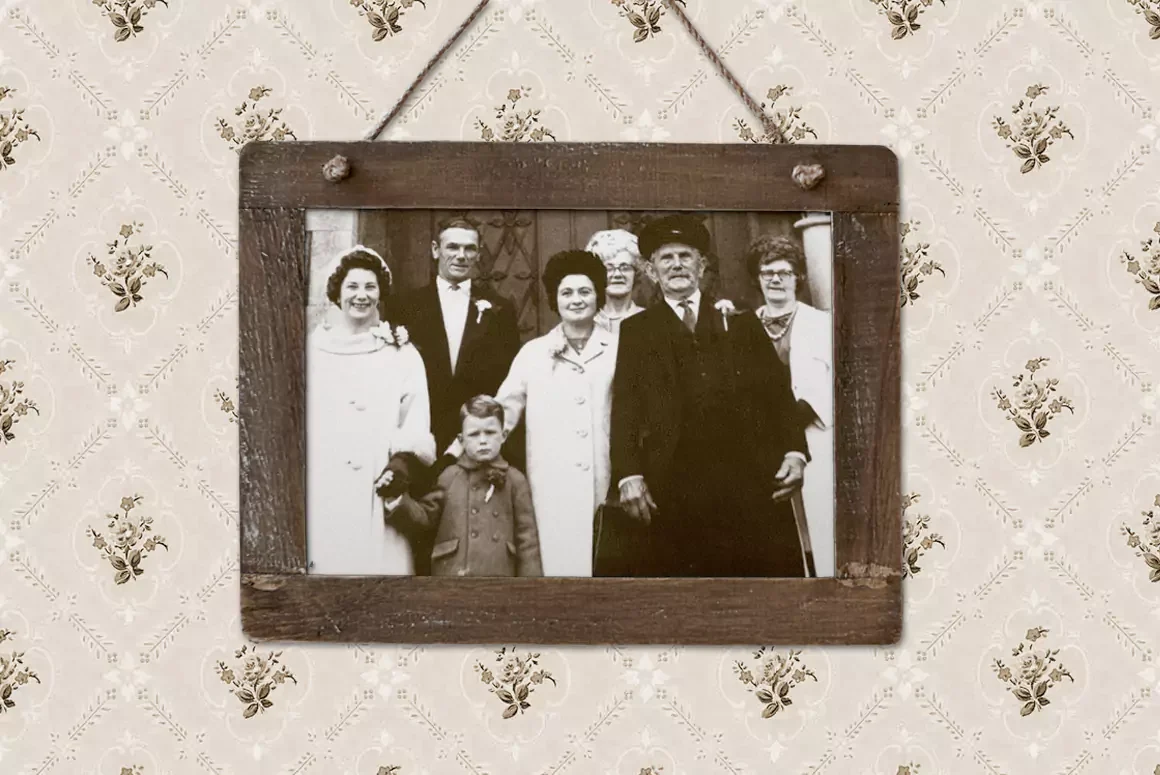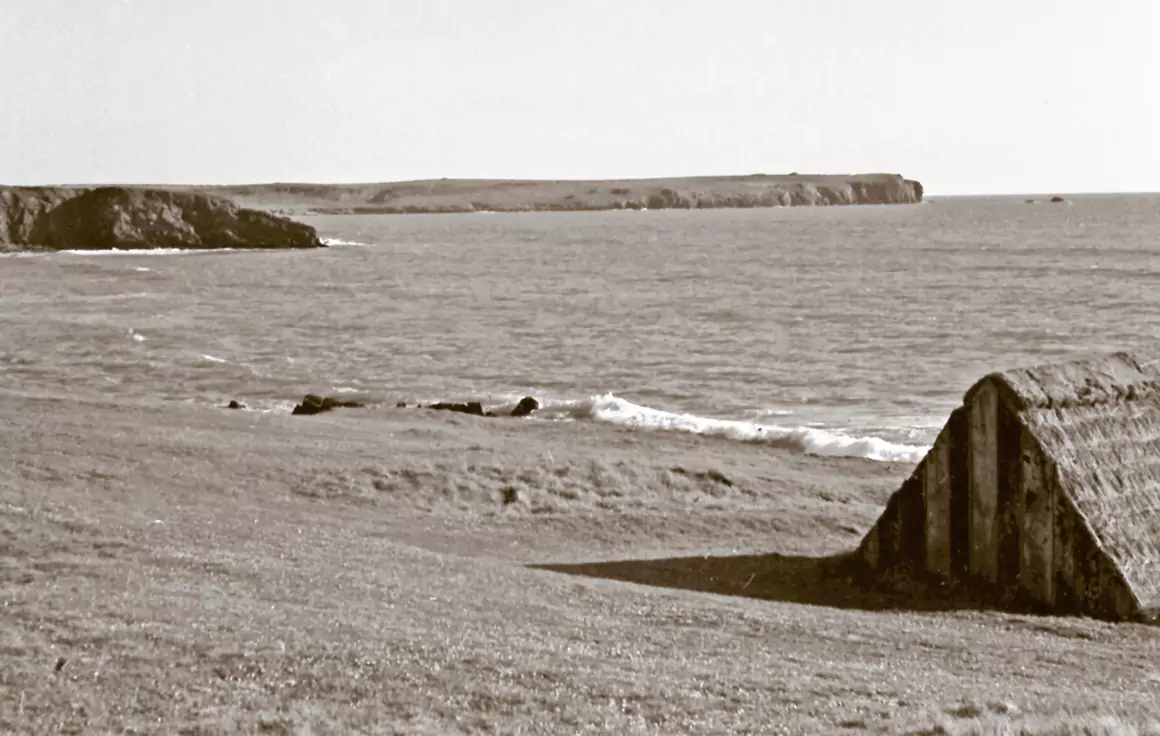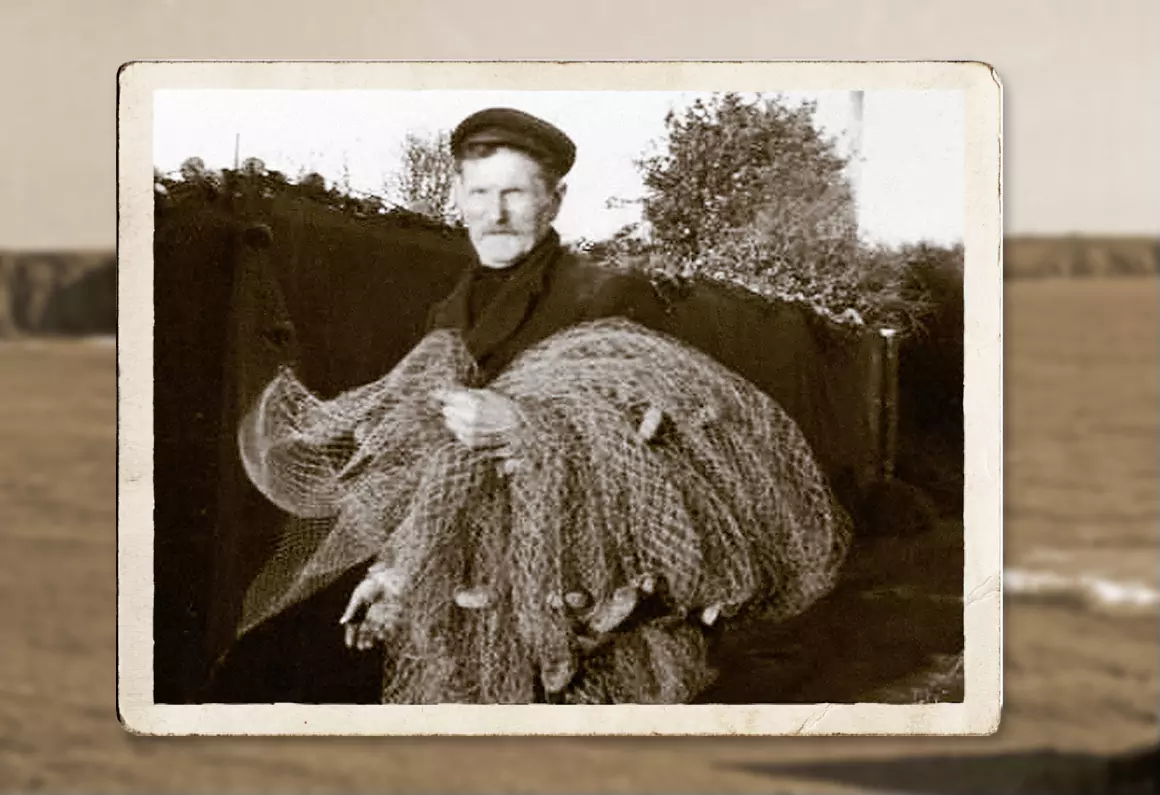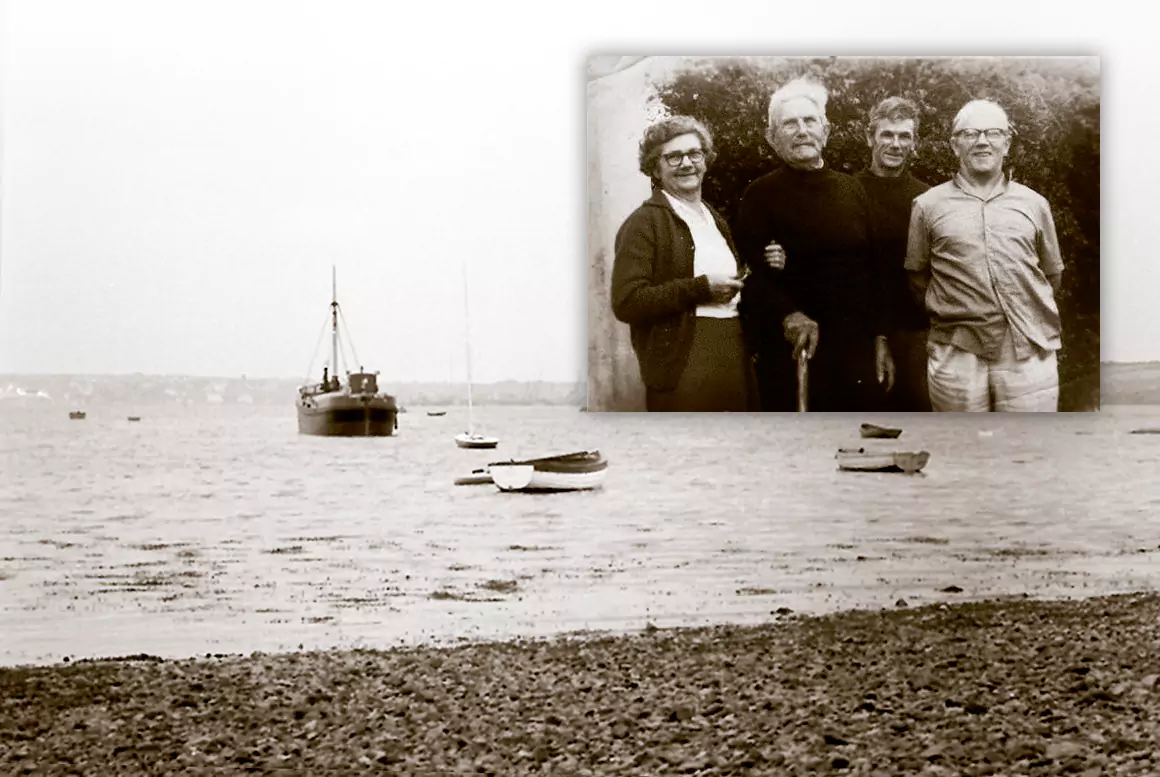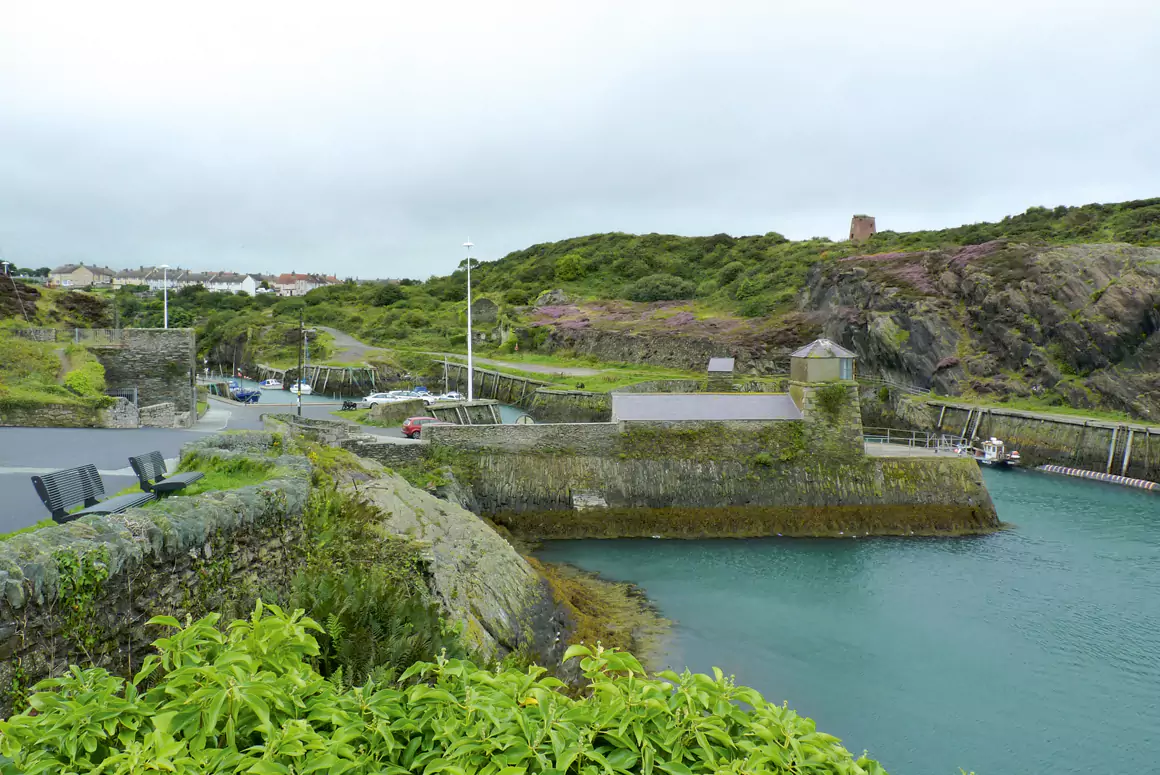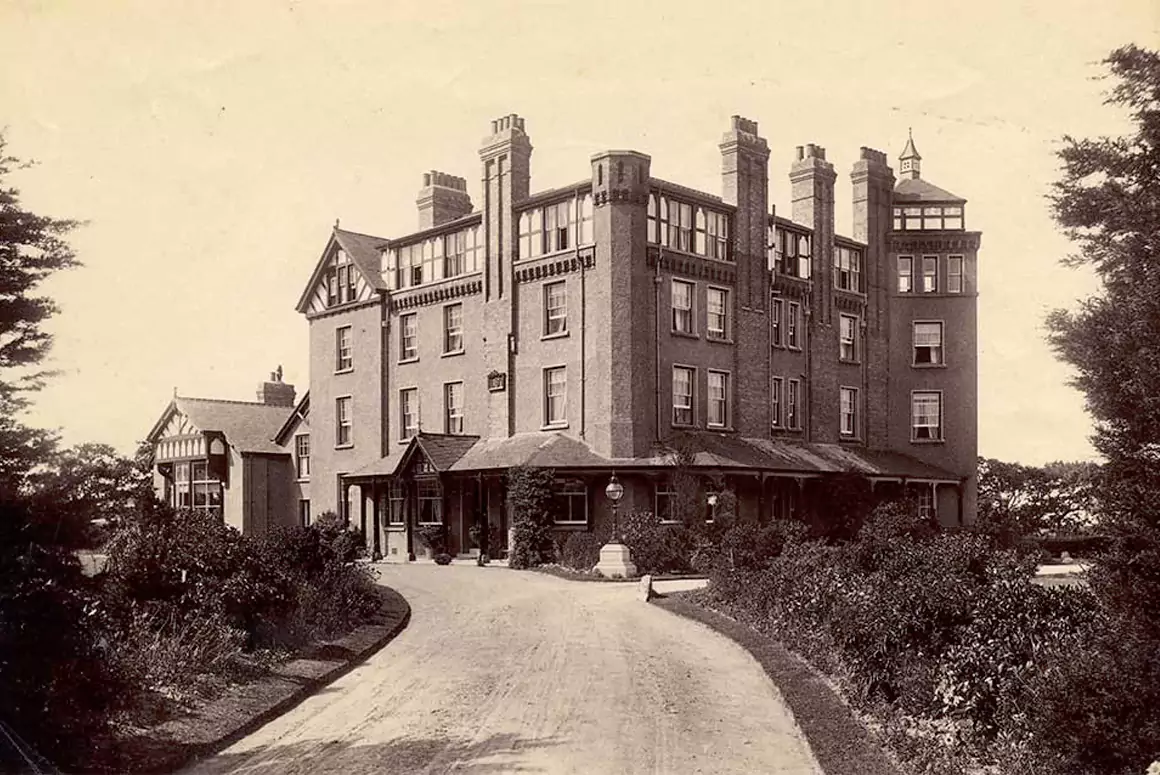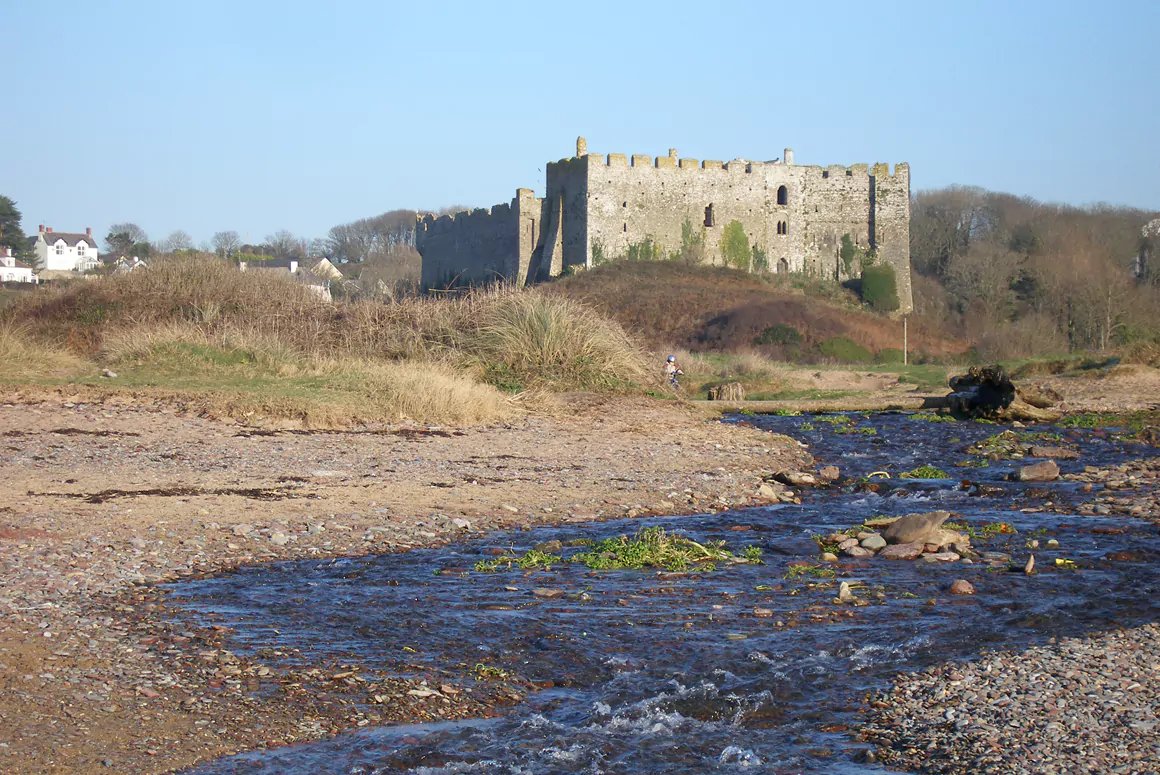Angle lies in a shallow valley, on the tip of the Pembroke peninsula, and is practically surrounded by the sea, the Milford Haven waterway to the north and the Atlantic to the south. You can’t go on: the next stop is Ireland, miss that and you end up in New York!
The Hickses lived in a flat-roofed, castellated house overlooking a tidal creek which fed into Angle Bay, a convenient situation as Cecil, the father of the family, had once been a coxswain of the Angle lifeboat, the house he and his family occupied was built in 1909 so as to be near the station.
Later it became an even more convenient location for earning a living as they were fishing folk, selling their catch throughout the village.
The family, when I knew them in the 1950s/60s, consisted of Cecil, his son Alastair, and daughters Margie and Audrey, though other offspring had flown the nest. One son, Billy, went to Plymouth and visited Angle, particularly at Christmas, bringing two pretty daughters with him, they kindly providing some of the pictures for this article.
Cecil and Margie I knew well as they both sang, like me, in the Angle church choir, the former an old man who was hard of hearing and often, though he had a fine bass voice, singing a bar or two behind everyone else which didn’t please his daughter. She gave him a stern look from her choir stall to the one behind where my brother, Peter, sat next to Cecil, he finding the pages in Hymns Ancient and Modern for him.
He was a lovely-natured old man. A pipe smoker, he smelt of tobacco and had a sweet smile. He wore navy-blue serge trousers and a blue woollen pullover, peaked sailors’ cap, and a broad belt with an integral money pouch.
Not that, I suppose, he had much money; but he kept at home a bottle of rum, providing me with my first experience of alcohol.
Visiting him on one occasion with my father, the village parson, I recoiled when plied with some of this potent liquor, a reaction which amused both Cecil and my father as they drank the contents of their glasses happily enough.
The fish the Hickses mostly caught (and it would have been Alastair who did the catching, his father, Cecil, mending the nets draped over the wall) were flatfish, caught in Angle Bay. They were delivered by Margie, alive and kicking, for my mother to deal with: the head first, and then the guts!
But it wasn’t only fish they caught: the womenfolk rode their bikes to nearby Freshwater West where they collected the laver weed from the rocks and brought it back, distributing the strange black stuff to those of us who loved it, an acquired taste as I find it’s only people from Swansea westwards who like it.
Back in the day when the weed gathering was more of a local industry, it was dried in huts, one of which has been restored and which is now a well-known landmark overlooking the magnificent bay.
It was the Hickses who operated the last hut. There were once as many as twenty from which the laver weed was transported by horse and cart, and later by lorry, to Pembroke station.
In many ways the Hickses family practised subsistence farming, a way of life just about engaged in in the post-war Angle I knew. They were the last of a hardy people, experts at what they did.
But what a benefit to those of us who ate what they caught and garnered, fresh food from out of the sea and rocks surrounding us.
Years later, I wrote a poem about the Hickses, imagining myself as Cecil in old age:
Old Fisherman
Too old now I sit in the evening sun
and watch the slow tide flooding in and out.
I mend the high draped nets when I can
though my joints won’t stoop down to the lobster pots.
My son Billy takes all the boats out now;
I’ve told him where the fattest flatfish lie
and where the mackerel are and where to row.
He’ll soon be home on the late evening tide.
The girls they work the rocks some miles away,
stripping the strewn black laver-weed,
a way of life that nowadays doesn’t pay;
but I like it for supper, oatmealed, fried.
It’s chilly here. When will the children come?
Ah, Billy’s home: I hear his outboard’s hum.
Words: Andrew Thomas
First published in Welsh Country Magazine May-Jun 2019


